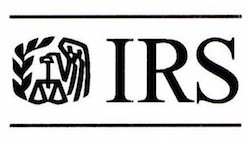Small Business People Should Beware the Trust Fund Recovery Penalty When Dealing with Payroll Taxes
 Payroll taxes are often one the biggest scourges of business people. In particular, they can be the downfall of many small businesses, especially start-ups. One of the primary ways that payroll taxes can “bite” a small business person is through the “trust fund recovery penalty.” However, with proper planning and proper systems in place, your business can avoid this penalty and the devastating effects it can cause.
Payroll taxes are often one the biggest scourges of business people. In particular, they can be the downfall of many small businesses, especially start-ups. One of the primary ways that payroll taxes can “bite” a small business person is through the “trust fund recovery penalty.” However, with proper planning and proper systems in place, your business can avoid this penalty and the devastating effects it can cause.
One of the essential reasons payroll taxes cause small businesses so much difficulty is because they do not come due immediately. This delay can lead the ill-prepared small business into peril, especially during hard economic times like the recent recession. For example, a small start-up company is experiencing cash-flow difficulties. In order to bridge this cash shortfall, it dips into the funds withheld from employee’s wages to cover payroll taxes. The business owners intend the money only as a loan, planning to repay the amount as soon as the cash flow crisis passes. Unfortunately for too many businesses, either the cash crunch remains, or they simply continue the cycle of borrowing from the money intended for payroll taxes.
These kinds of scenarios can prove ruinous, not only for the business, but its individual principals, as well. Section 6672(a) of the Internal Revenue Code doles out penalties for willful nonpayment of payroll taxes. This penalty, the Trust Fund Recovery Penalty (TFRP,) is imposed against the person responsible for paying the payroll taxes and who willfully did not comply. If the company does not pay the unpaid payroll tax, then the individual designated as the company’s “responsible person” becomes responsible for paying that debt. The corporate structure, regardless of its form, does not protect the responsible person from potential individual liability for the TFRP. The law uses a wide definition for what constitutes “willful” behavior. The person who made the error and was unable to pay need not have nefarious intent or act in bad faith. Even if the responsible person sincerely, but mistakenly, believed the company had an obligation to pay other creditors before the IRS, the nonpayment is still willful, according to the Internal Revenue Manual. In fact, one federal appeals court ruled that, even when a responsible person’s superior ordered him not to pay, the nonpayment was willful. A claim of non-willfulness generally will only succeed if an intervening cause existed. An office manager who embezzled funds from the business including the payroll tax withholdings would be an example.
Certainly, one straightforward way to minimize a business’s risk with regard to the TFRP is not to borrow from the money withheld from employees’ wages for payroll taxes. Whether your business believes it may face a TFRP issue, or simply wants to guard against having one, you can benefit from retaining capable, experienced accounting and legal advice. The experienced tax attorneys at Samuel C. Berger, P.C. and CPAs at S.C. Berger, P.C. have in-depth knowledge and years of experience aiding businesses throughout New York and New Jersey in crafting legal and tax plans to prevent future problems, or minimize the damage of existing ones. To consult our attorneys and CPAs, contact us online or call (201) 587-1500 or (212) 380-8117.
More Blog Posts:
When Might a Corporate Officer Owe a Fiduciary Duty to a Corporate Creditor? – Workforce Solutions v. Urban Services of America, New York & New Jersey Business Lawyer Blog, Jan. 11, 2013
Corporate Directors, Even Though Acting in Subjective Good Faith, May Breach Fiduciary Duties to the Corporation, According to Delaware Court, New York & New Jersey Business Lawyer Blog, Dec. 28, 2012
Study Finds that Citizenship Test May Not Be Reliable, New York & New Jersey Immigration Lawyer Blog, March 15, 2012
 Hackensack, New Jersey Payroll Tax Lawyer Samuel C Berger, PC Home
Hackensack, New Jersey Payroll Tax Lawyer Samuel C Berger, PC Home



